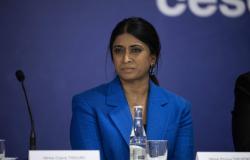Hungary’s six-month Presidency of the European Council began on 1 July. And although, after the Treaty of Lisbon (which entered into force in December 2009), the six-monthly presidency was “weakened” – today there is a permanent President of the European Council and the Foreign Affairs Council meetings are now chaired by the High Representative of the Union for Foreign Affairs and Security Policy – in Brussels there are those who wonder how much and what damage the prime minister can do more often in conflict with other Member States and with EU institutions, that is Viktor Orbán, from now until the end of the year. The fact that Orbán has chosen, for his presidency, a motto modeled on that of Donald Trump, «Make Europe Great Again», does not sound particularly reassuring.
Politico Europe has dedicated an entire Special to the Hungarian rotating presidency. Barbara Moens, however, explains that Brussels took some countermeasures in time. For example, it made sure that the most controversial issues were closed during the Belgian presidency, in the first half of this year. This is the case of the start of preliminary talks for the accession of Ukraine and Moldova (the Hungarian presidency is more likely to push to accelerate or revitalize the practices with Serbia, Montenegro, North Macedonia and Albania as Bernd Riegert reports on Deutsche Welle) or the new package of sanctions against Moscow and military aid to Kiev. As an EU diplomat who asked to remain anonymous told Moens, “the pressure on the Belgian presidency was clear: to conclude the agreements before Orbán’s arrival, to avoid excessive damage.”
While Lithuanian Foreign Minister Gabrielius Landsbergis claims that “almost all our decisions and discussions are blocked by one country” and accuses Budapest of a “systematic approach against any effort by the EU to have a significant role in foreign policy”, others are less drastic. Some sources contacted by the Guardian’s Brussels correspondent Jennifer Rankin point out that the Hungarians “block everything for a while, but eventually give in (perhaps after having obtained undeserved compensation, we add, ndr). So far there is nothing they have actually destroyed.”
Then there are those – including the correspondent of the Courier from Brussels Francesca Basso, who wrote about it in today’s America-China — points out that, even if it should in some way “dictate the agenda”, the Hungarian presidency comes immediately after the European elections and, between the confirmation of the nominations (see the European Parliament’s vote on von der Leyen in mid-month), the choice of commissioners and the actual entry into office of the new Commission, it will be a rather poor semester of legislative initiatives that can be thwarted.
But there are also those who think that this coincidence could be an aggravating factor. Milan Nic, researcher at the German Council on Foreign Relations, tells Politico Europe that, more than on the internal European level, Orbán will take advantage of the presidency as an international showcase and “wants to use the influence he can have bilaterally with third parties”. And these third parties may not be welcome to many EU partners. The Hungarian prime minister, for example, has already officially made it known – even going to meet him in Florida last March – that he hopes for Donald Trump’s return to the White House. And his “closeness” to Vladimir Putin’s Russia and Xi Jinping’s China is equally well known.
Kim Lane Scheppele, who teaches politics and law at Princeton University, points out to the Guardian that precedent leads to pessimism: “Orbán has already used two pauses in EU oversight to consolidate autocracy. He used his rotating presidency in 2011 to push through his new autocratic constitution and several accompanying laws detailing the new constitutional system.” During another six-month lull in EU affairs around the time of the 2019 European elections, Orbán pushed through controversial changes that dented the rule of law and workers’ rights. These included legislation allowing companies to require staff to work an extra day of overtime per week; the “salad law” – so called because it mixes a hodgepodge of different ingredients – to bring the judiciary under government control; and he introduced state control over the Hungarian Academy of Sciences’ research network.” And speaking before the European Parliament, French Green MEP Gwendoline Delbos-Corfield, who has been working on Hungary’s rule of law violations for five years, said she was concerned that the next six months would lead to a worsening of the anti-LGBTQ+ climate and the reversal of judicial reforms agreed with the EU last year to partially unblock frozen European funds (amounting to 30 billion euros).
On the other hand, Kaja Kazmierska, on The Loop, a blog of the European Consortium for Political Research, while admitting that Orbán’s first EU rotating presidency — in 2011 — was “a wasted opportunity”, writes that this could be an opportunity “to bring the EU closer to Hungary and to provide ordinary Hungarians with a positive story of the European project. This is where a rotating presidency should shine”. Although the Hungarian Minister for European Affairs, János Bóka, says Politico Europe «we are aware that we will be watched very closely to see whether we will sincerely cooperate with the member states and institutions and whether we will be correct intermediaries», the words spoken on Sunday by Orbán («What Europeans want are three things: peace, order and development. What they get today from the Brussels elites is war, migration and stagnation») do not, once again, induce excessive optimism.
Its a point Politico Europe had guessed right on the eve: Orbán could use the spotlight and the influence of the rotating presidency to “unite the right following the shift in that direction in the European Parliament elections”. The “Patriots for Europe” project launched in Vienna in the last few hours, together with the leader of the Austrian far right Herbert Kickl and the former Czech prime minister Andrej Babiš, and already welcomed by Matteo Salvini (even if its placement and compatibility with Id and Ecr, the two right-wing groups already existing in the European Parliament, remains to be seen) goes in that direction. And as a frequenter of the corridors of EU power tells Moens, “in the short term, Brussels will be able to limit the damage. But in the event of a Trump re-election and greater unification of the right in Europe, Orbán could be able to increase his influence and his ability to leverage within the Union”.
As we saw in a previous edition of the Review, in his annual speech before the Parliament in Budapest, Orbán said: “Real change can be brought by a new European right, of which we Hungarians are part. Down with Brussels. Long live Europe!”. But a Europe that risks being increasingly divided into nations instead of united in the face of global challenges and competitors. Respect the environment: if you don’t need it, don’t print this email.





